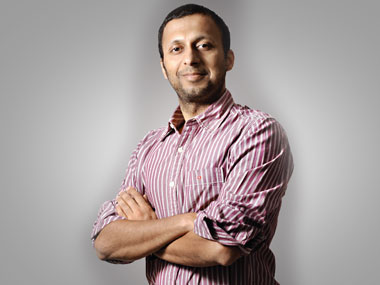Though acknowledged as a critical function of any company, human resource (HR) has seldom got its due in comparison to other managerial functions like marketing and finance. However,with people management issues gaining currency in the corporate arena, a change is on its way reveals a survey by Deloitte, HR Transformation in India. It says HR improvements are primarily driven by value creation and not cost cutting, which was the old norm.
“Technology has undoubtedly played a major role in this shift,” says Debadatta Baxi, HR head at a leading FMCG and foods company. While the initial focus was to develop information technology (IT) systems for the sake of efficiency, it has also helped HR teams develop business acumen, contribute, collaborate in decision-making and gradually become a strategic business partner.
Ruchi Pandey, an HR manager at a leading consultancy in India agrees with Baxi. “Technology helps adapt to new changes with minimum inputs. It’s enabled marginalized talents-stay-at-home parents, caregivers, retirees, students - to enter the labor market.”
[caption id=“attachment_77394” align=“alignleft” width=“380”]
 Mettle co-founder Ketan Kapoor. Image: Amit Kumar[/caption]
Mettle co-founder Ketan Kapoor. Image: Amit Kumar[/caption]
For headhunters like Samir Akber, Managing Director, Theron International, technology has helped them evolve from plain sourcing to conduct deep research on the hiring processes. “It will change the way we offer our services but as long as we adapt to these changes, there will be headhunters for business,” he asserts.
The online advantage
Indian startups have been at the vanguard of change with innovative products that address key pain points in recruiting, assessing and retaining employees. One example of this isGurgaon-based Mettl founded by school friends, Tonmoy Shingal, 33, and Ketan Kapoor, 34, in 2009. Their flagship product is an online assessment solution for testing technical, aptitude and psychometric skills of potential candidates which help companies measure, analyze and improve people skills.
The initial idea was to develop industry - specific courses for students followed by assessment and finally placement. Though it got traction, the duo realized that content-led solutions were difficult to scale. “Scale could come from various channels and the closest we could think of was through technology,” recalls Shingal, Co-Founder and COO, Mettl.com, as they restructured and focused solely on assessments by end-2010.
On the other hand, friends Himanshu Jain, 28, Shirish Bhatt, 27, and Amit Savargaonkar, 28, came together to address the challenges colleges face with campus placement and simultaneously address the issue of access to talent for corporate firms. The result? Camplace, a Pune-based firm that offers a cloudbased product to streamline campus recruitments by virtually connecting colleges with companies and was launched in January 2012.
“Companies don’t just need people for top positions. They often look for lower skill requirements. People have a tough time with campus placements and if you’re not from a reputed college, you probably won’t even get access to some companies because they don’t come to colleges for placements,” says Bhatt, Director, Camplace.
Setting themselves apart from the other two is Bengaluru-based Interview Master. They have a solution for those terrified of facing an interviewer in a job interview. Founded in May 2012 by three IIT Bombay alumni and a management consultant, Interview Master provides aplatform that allows companies to sieve a number of applications and narrow down on suitable candidates without having to conduct face-to-face interviews.
[caption id=“attachment_77397” align=“alignleft” width=“380”]
 Subramanian K, Jobin Jose, Sanjoe Tom Jose of Interview Master. Image: bmaximage[/caption]
Subramanian K, Jobin Jose, Sanjoe Tom Jose of Interview Master. Image: bmaximage[/caption]
Tech-centric tools
“We had mock interviews at IIT Bombay which were recorded and put up online for alumni references,” recalls Sanjoe Tom Jose, CEO and Co-Founder, Interview Master, as they took this concept and created a platform for organizations centered on convenience.
“Scheduling interviews is one major problem that companies face besides having too many applicants sometimes,” Jose says. “Often an interviewer knows in two to three minutes if the candidate is unsuitable for the job but he must conduct the full interview, which is aproblem for them,” he adds.
The recruiter creates an account and an interview with five to ten questions that needs to be answered in text or video form. A link to the same is sent to the interviewee with a deadline for responses.
The candidate can access this link at a suitable time and the clock starts ticking as soon as the first question is displayed. Once responses are in, the recruiter can share them internally for feedback. The team can select answers they want to see according to the level of importance placed on each question by the recruiter.
The companies can carry out interviews after this round of screening. Jose mentions that companies now interview only two to three candidates down from 12-13 for the same position.The platform is available to companies on an annual user license-based model at Rs 60,000 per license. It breaks down to a cost of Rs 60 per interview for the company, the Interview Master team informs us. Once a company registers with Camplace, their HR team gets access to the platform that is offered on a Software as a Service (SaaS) model.
Students create profiles verified by college administration that can be scanned by HR teams who may then set up group discussions and interviews. Colleges and companies can also createmicro sites within the portal to showcase job requirements, credentials and achievements of colleges. “The platform takes care of the entire process from sourcing profiles, tests, to rolling out offer letters,” says Bhatt.
For students, Camplace provides a practicing module for test and interview preparation.
Alumni from various colleges can also be on the platform and assist students with training. Camplace is used by 130 corporate firms including Axis Bank, Serum Institute of India, Kirloskar Brothers Ltd besides 70 colleges which have signed up for it. Colleges pay according to the number of logins or accounts it creates for students: Rs 500 per student login apart from Rs 20,000 as set-up fee. Corporate firms pay Rs 5,000 per month or can payRs 30,000 for 12 months besides other subscription packages.
Detailed testing
Mettl has developed a simulator to assess coding abilities of candidates. “Through our platform an employer can give a coding problem and the code can be written there itself and the platform assesses it. Till now the assessment of coding was based on subjective evaluation but with our platform that is not the case,” explains Shingal.
Mettl has developed more such simulators that closely resemble real life scenarios. It has also developed a new system to automatically invigilate exams.
“If you’re a company looking to hire from a remote place and do not have time, resources or money to go there, the process can be done remotely,” says Singhal. “Through our platform, you can set up a virtual exam hall. Candidates can use their own laptops. Our image and other algorithms will automatically detect if any cheating is happening and flag it.”
Mettl’s charges are based on numbers of assessment where a company pays per head ranging from Rs 50 to Rs 1,200 based on the nature of the test. If a company wants unlimited tests for a candidate, they can use the second model. Mettl will create a log-in for each person and the client pays Rs 350- Rs 500 per candidate, per month, depending on features of the test.
Both Camplace and Interview Master have mindfully designed technology around infrastructure and connectivity issues.
“Our platform requires an internet speed of only 150 kbps,” says Bhatt. “The technology does not need high bandwidth connection like video conferencing and can even work on GPRSconnections,” adds Subramanian K, CTO, Interview Master.
Scope for more
Mettl founders invested Rs 10 lakh and raised seed capital of Rs 40 lakh from friends and family to hire platform developers. Later in mid-2010, Blume Ventures invested Rs 1.8 crore ($350,000). Mettl got its first client when IT consulting major Capgemini decided to try the assessment platform in mid 2011 and today seven of the top ten IT companies in India use Mettl.
Last July, it raised Rs 22 crore ($4 million in Series A from Kalaari Capital as leadinvestor and Blume reinvested). Sumit Jain, Vice President, Kalaari Capital says Mettl’s solutions are extremely scalable and the business model is not high on capex.
“What Mettl has enabled HR managers to do across companies is to cut down hiring cost and time by a huge margin. This is a game changer,” says Jain. Interview Master, set up with thefounders’ personal savings and support from friends and family, went through the accelerator program run by VentureNursery and raised an undisclosed amount of angel funding from them in June 2013.
“The video interview product they have is great because it can be used for many things like employee feedback and in-house surveys, beyond just interviewing candidates for a job,” mentions Ravi Kiran, Co-Founder, VentureNursery.
Navigating nooks
Camplace revenues stood at Rs 25 lakh for FY12-13 and is aiming for a turnover of Rs 1.5 crore this fiscal. The initial investment in the company was Rs 80 lakh funded by friends and family. It wants to raise Rs 2.5 crore and get 2,000 corporate companies on the platform by year-end.
Shingal says cracking a deal takes time in the HR space despite the clear and tangible benefits.
“It takes about three-six months and sometimes more to make inroads into an account. Increasingly, however, HR managers in companies are receptive to technology. Our system is not a replacement to a HR manager but only a medium to make them more efficient and effective,” he says.
The assessment market worldwide is worth Rs 250,000 crore ($50 billion) but mostly takes place offline, mentions Shingal. He hopes 5-10 percent shifts online and predominantly to his platform in the next two-three years.
Last fiscal, Mettl grew 4 times compared to the previous year but Shingal did not reveal numbers. This year it plans to grow 4-6 times on revenues. Kiran says a concept similar toInterview Master has worked successfully abroad, but a big challenge in this sector is the macro-economic health. “When markets are bad, companies won’t spend on hiring new employees,” he says.
“This product is mostly for junior level positions. Companies will not use this tool for senior level positions,” affirms Kiran.
By Pranbihanga Borpuzari and Shruti Chakraborty
This article first appeared in Entrepreneur India magazine.
)